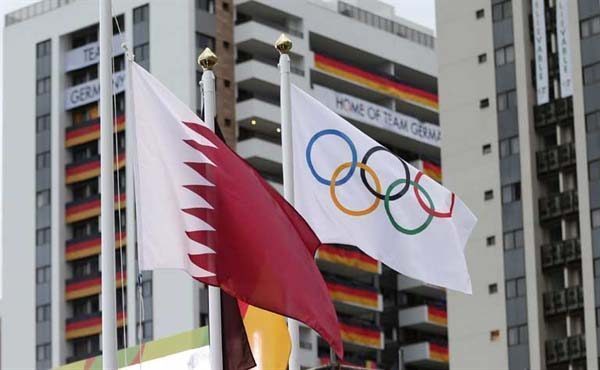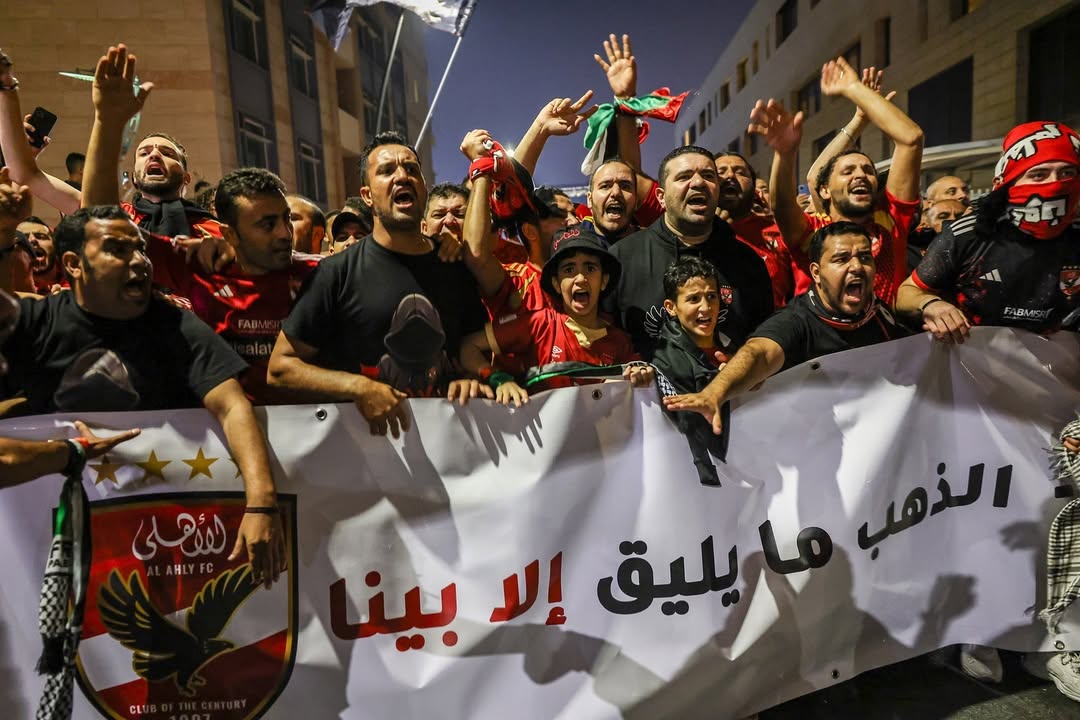Despite being unsuccessful in its bids for the Olympics in 2016 and 2020, Qatar has since distinguished itself by investing in world-class training facilities and top-notch sporting infrastructure.
The Olympics hold profound significance as a symbol of global unity, sporting prowess, and cultural celebration; Qatar, recognising the transformative power of these quadrennial games, has long set its sights on hosting the Games.
Having elevated its global profile through successfully hosting major international sporting events, including the FIFA World Cup in 2022, Qatar has distinguished itself with a unique and ambitious approach.
Now, Qatar sets its sight on achieving a historic milestone by becoming the first Arab and Muslim nation to host the Olympics, a testament to its commitment to global unity and cultural celebration.
Third time’s a charm
Despite facing disappointment twice in the efforts to be shortlisted for the Olympics — first in 2016 and then again in 2020 — Qatar has since characterised itself by developing unparalleled professional training facilities and sporting infrastructure.
Simon Chadwick, a Professor of Sport and Geopolitical Economy at Skema Business School, emphasised that Qatar’s recent developments have fundamentally altered its standing in the bidding process, in an interview with Doha News.
“Experience, established infrastructure, and a more prominent place in the world. When Qatar last bid, it was a somewhat unknown quantity. Now, after a decade of hosting events and engaging in diplomacy, the country is a completely different proposition,” Chadwick said.
In addition to its long and proud sporting heritage, Chadwick expressed that Qatar’s role as a third-party mediator in regional conflicts could benefit the country’s candidacy for hosting the Olympics.
“Qatar has been working hard to position itself as a trustworthy, mid-ground, diplomatic partner that enjoys constructive relationships with a multitude of countries,” Chadwick told Doha News.
Despite sports not intended to be political, they have always been intertwined with politics.
Citing Qatar’s commitment to the mediation Israel-Hamas, Chadwick said, “Recent events in Palestine haven’t adversely impacted upon the country’s stature, some might even argue the country’s credentials are now even stronger.”
Prospect of a GCC Olympic
An Olympic host can now officially be in multiple countries after the International Olympic Committee (IOC) approved bidding and host-city election reforms in 2019.
The 2026 Winter Games will mark a historic first, with Milan and Cortina d’Ampezzo in Italy serving as the official host cities.
Professor Chadwick suggests that the revised definition could prompt Qatar to collaborate with other Gulf countries, potentially easing concerns raised during the 2017 Qatari blockade, particularly those expressed by neighbors such as Saudi Arabia.
“A 2036 Olympics in Qatar would be likely to have a significant impact upon the perceived balance of power across the Gulf. Some local rivals might feel antagonised by it,” Chadwick said.
“Qatar needs to decide whether it partners with, say, Saudi Arabia to make a bid. Or Qatar needs to revisit its initial World Cup positioning that it was a regional tournament. To allay the concerns of neighbours, Qatar should be reaching out to them now, whilst a rumoured bid is being prepared now,” he added.
Qatar has yet to bid for the 2036 Olympics officially, but several of its officials have expressed confidence that the country can successfully host any mega sporting event in the future.
Amid the closing chapter of the AFC U23 Asian Cup Qatar 2024 earlier this year, Abdulla Al Fehani, Executive Director of Venues and Technical Services at the tournament’s Local Organizing Committee (LOC), expressed how triumphant the country has been in hosting the competition for the second time.
“This tournament reaffirms Qatar’s position as a global leader in hosting mega-sporting events,” said Al Fehani in May.
“With two out of the four stadiums used in the tournament previously hosting matches during Qatar 2022, the competition showcased the direct legacy left behind by the World Cup,” he added.
Historic truce and triumph
The history of the Olympics traverses back to ancient Greece with the first evidence of the official games dating back to 776BC. Beyond being a festival held every four years venerating Zeus, alongside the athletic competitions, the Pythian or Delphic games hosted various activities, such as poetry, music and theatre.
“Since antiquity, the Olympic games have been regarded as ‘the event of the year’. Wars would even be suspended during the Olympic season,” Dr. Zarqa Parvez, visiting scholar in international politics at Georgetown University – Qatar, told Doha News.
The United Nations Olympic Truce resolution, which was ratified in 1993, urged all member states to abstain from conflict from the seventh day before the opening and the seventh day following the closing of the tournament.
This was to encourage the “promotion of international understanding and the maintenance of peace and goodwill” on the world stage. This harks to the ancient Greek tradition of ‘ekecheiria’ – a concept initiated by a treaty inked by ninth-century kings Iphitos of Elis, Cleosthenes of Pisa and Lycurgus of Sparta.
The Greek leaders enacted the treaty to ensure a safe Olympic season for all at the backdrop of a Greece otherwise constantly engaged in conflict.
Despite the event being a time for quelled violence, Dr Parvez explains to Doha News that the Olympic stage becomes a battlefield – just without weapons.
“International sporting events, such as the Olympics, provide platforms for independent nation states to perform their identity. It becomes a peaceful battle between nations to demonstrate their strength and capabilities to the world,” she said.
She further underscored how nation-statehood is at the heart of the Olympic games.
Performance of a nation
The International Olympic Committee (IOC) comprises 105 members and 38 honorary members.
Qatar, represented by the Amir, Sheikh Tamim bin Hamad Al Thani, became recognised by the IOC in 1980.
With the exception of 29-year-old Yiech Pur Biel, a UNHCR-Recognised Refugee, all other members are representatives of nation states.
“To even be considered for representation at the Olympics, you must be a state,” Dr. Parvez said.
“To be a state, you need a national identity that you can represent, “ she added.
For instance, at the closing ceremony of the historic FIFA 2022 Qatar World Cup, Sheikh Tamim gowned Lionel Messi with the traditional ‘bisht’ after he led his squad to victory.
The gesture from the Qatari royal to the Argentinian footballer drew scathing xenophobic criticism from Western pundits and journalists.
Britain’s Telegraph referred to it as a “bizarre act that ruined the greatest moment in World Cup history,” while an Australian media site charged Qatar with “hijacking” Messi’s moment.
“The World Cup ‘bisht’ episode perturbed European and North American audiences. Perhaps it was too much, too soon for them to see Qatar projecting itself in this way,” Chadwick told Doha News.
He added that in the future, should the Gulf state be successful in securing an Olympic bid, it will need to skillfully highlight its commitment to collective global values, projecting its growing stature and the trust it has earned internationally.







